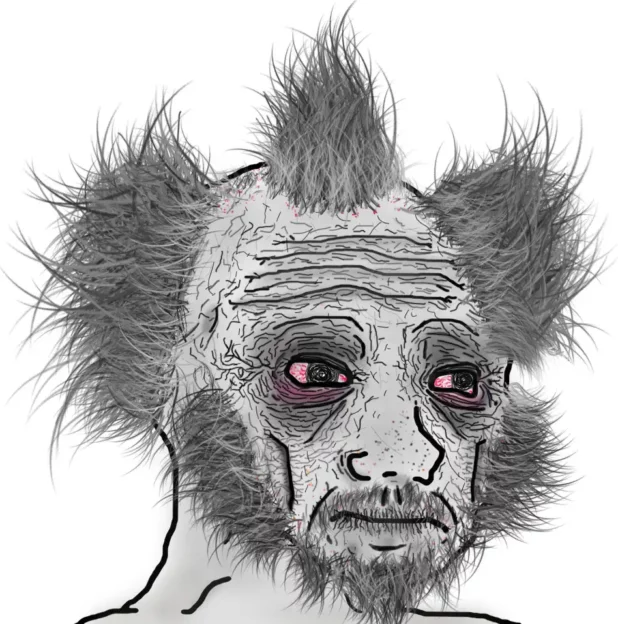Ten years ago (or even five), there were people insisting that they had data that legalizing all drugs would cut down on use. I’m serious, you can look it up – this was a widely made argument by many different types of experts and theorists.
This is some “French youths are responsible for the race riots” type thinking, which is in itself “men can get pregnant too” type thinking.
You see, in a society without God, there is no desire for the truth. In a Godless society, truth is just an inconvenience. People say and listen to things that make them feel good.
The core pillars of Christianity are truth, justice, and beauty. Legalizing drugs is an attack on all three.
Every problem of the West is part of the same problem, which is the abandonment of God and the belief that man can make his own law.
None of this is ever going to be solved without Jesus Christ.
Addiction haunts the recesses of this ancient port city, as people with gaunt, clumsy hands lift crack pipes to lips, syringes to veins. Authorities are sealing off warren-like alleyways with iron bars and fencing in parks to halt the spread of encampments. A siege mentality is taking root in nearby enclaves of pricey condos and multimillion-euro homes.
Portugal decriminalized all drug use, including marijuana, cocaine and heroin, in an experiment that inspired similar efforts elsewhere, but now police are blaming a spike in the number of people who use drugs for a rise in crime. In one neighborhood, state-issued paraphernalia — powder-blue syringe caps, packets of citric acid for diluting heroin — litters sidewalks outside an elementary school.
Porto’s police have increased patrols to drug-plagued neighborhoods. But given existing laws, there’s only so much they can do. On a recent afternoon, an emaciated man in striped pants sleeping in front of a state-funded drug-use center awoke to a patrol of four officers. He sat up, then defiantly began assembling his crack pipe. Officers walked on, shaking their heads.
Portugal became a model for progressive jurisdictions around the world embracing drug decriminalization, such as the state of Oregon, but now there is talk of fatigue. Police are less motivated to register people who misuse drugs and there are year-long waits for state-funded rehabilitation treatment even as the number of people seeking help has fallen dramatically. The return in force of visible urban drug use, meanwhile, is leading the mayor and others here to ask an explosive question: Is it time to reconsider this country’s globally hailed drug model?
“These days in Portugal, it is forbidden to smoke tobacco outside a school or a hospital. It is forbidden to advertise ice cream and sugar candies. And yet, it is allowed for [people] to be there, injecting drugs,” said Rui Moreira, Porto’s mayor. “We’ve normalized it.”
…
A newly released national survey suggests the percent of adults who have used illicit drugs increased to 12.8 percent in 2022, up from 7.8 in 2001, though still below European averages. Portugal’s prevalence of high-risk opioid use is higher than Germany’s, but lower than that of France and Italy. But even proponents of decriminalization here admit that something is going wrong.
Overdose rates have hit 12-year highs and almost doubled in Lisbon from 2019 to 2023. Sewage samples in Lisbon show cocaine and ketamine detection is now among the highest in Europe, with elevated weekend rates suggesting party-heavy usage. In Porto, the collection of drug-related debris from city streets surged 24 percent between 2021 and 2022, with this year on track to far outpace the last. Crime — including robbery in public spaces — spiked 14 percent from 2021 to 2022, a rise police blame partly on increased drug use.
…
Elsewhere in the world, places implementing decriminalization are confronting challenges of their own. In Oregon — where the policy took effect in early 2021 openly citing Portugal as a model — attempts to funnel people with addiction from jail to rehabilitation have had a rough start. Police have shown little interest in handing out toothless citations for drug use, grants for treatment have lagged, and extremely few people are seeking voluntary rehabilitation. Meanwhile, overdoses this year in Portland, the state’s largest city, have surged 46 percent.
Seems like the democrat dumps like Portland, Oregon want to supply drug addicts with drugs so Portland’s drug problem will overdose, each and every one pic.twitter.com/ECYvVm28g9
— • ᗰISᑕᕼIᗴᖴ ™ • (@4Mischief) June 3, 2023
Portland, Oregon used to be a gorgeous city many years ago. Todays Portland is full of filth, decay, crime, drugs, disease, and mental illness – Just what Dems had hoped for. pic.twitter.com/6Uz8hnbhkC
— 🇺🇸ProudArmyBrat (@leslibless) April 19, 2023
Homeless Man on Fentanyl in Downtown #Portland🎄
While families walk around to partake in the New Years Eve Festivities, they are forced to navigate the sidewalks in Shock & Horror – witnessing several people who are openly using Drugs.
This is all thanks to Oregon #Measure110. pic.twitter.com/Se3xCg51YB
— Brandon Farley (Portland Journalist) (@TheRealFarley) January 1, 2023
An eight-minute walk uphill from Porto’s safe drug-use center, in a neighborhood of elegant two-story homes with hedgerows of roses and hibiscus, neighbors talk of an “invasion” of people using drugs since the pandemic. Some gravitated here earlier, from a notorious public housing complex condemned and demolished nearly a decade ago. Others arrived more recently.
Over the last 18 months, a drug encampment sprung up below a school. More homes have been burgled. One neighbor said she found a person, naked from the waist down, shooting up outside her house gate. Another had her laundry stolen three times. Residents have launched U.S.-style neighborhood watches and hired private security guards — something exceedingly rare in Europe. Police deployed in force to the area three months ago to crack down on dealers, who can be and are being arrested. Patrol cars are now stationed in the neighborhood 24 hours a day, scattering people using drugs.
“But for how long?” said Rui Carrapa, one of the founders of the residents’ association Jardim Fluvial Free of Drugs. “We have to do something with the law. We know they can’t stay here forever. What happens when the police leave?”
The police should leave.
If I was the police, I would leave and move to Russia, where they have law and order.
Everyone in the world can see Portugal, which did this legalization program before anyone else. Yet everyone in the West – including the Americans – are pushing for the same thing.
The Jews that come up with these ideas hate us. They just want to destroy for the sake of destroying.
footage of Philadelphia’s “Tranq” epidemic pic.twitter.com/1g3TYSb7oJ
— Daily Loud (@DailyLoud) May 28, 2023
 Daily Stormer The Most Censored Publication in History
Daily Stormer The Most Censored Publication in History



